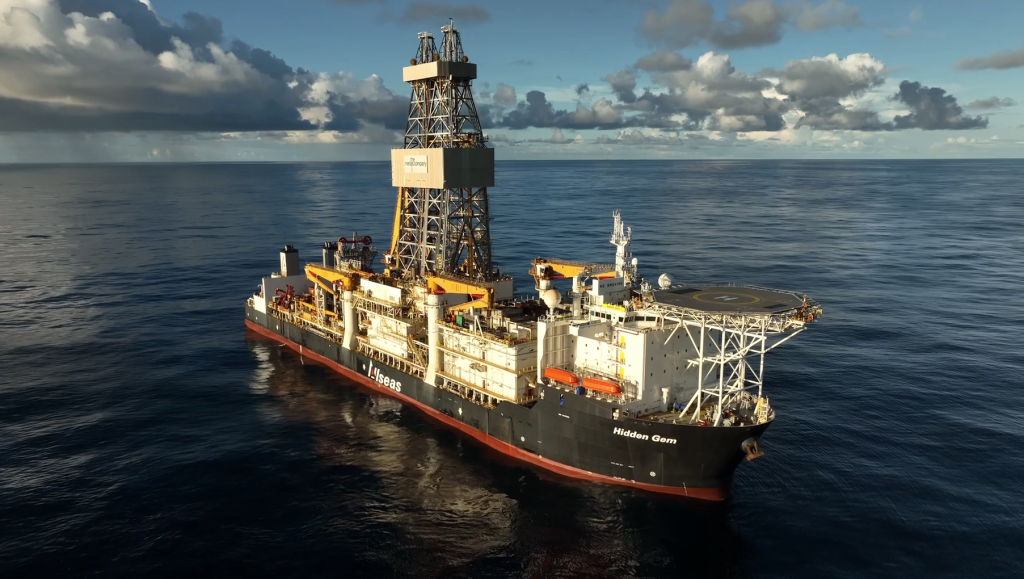search the site
Deep sea mining is the new front in Pacific competition

We should have been thinking about the seabed, not so much the cables.
When a Chinese research vessel was spotted near Australia’s southern coast in late March, opposition leader Peter Dutton warned the ship was likely ‘mapping undersea cables’, and others expressed similar concerns. But in the subsea domain, exploitation of the seabed itself is fast becoming the frontier where influence will be exercised, rules contested and regional alliances tested.
Two recent developments highlight the rising strategic importance of the seabed, far beyond the narrow frame of cable security.
In February, the Cook Islands government signed a deal with China, granting licenses for seabed surveys. Weeks later, Vancouver-based The Metals Company (TMC) began lobbying the United States to bypass the International Seabed Authority (ISA) and issue permits for commercial seabed mining directly.
These developments reflect the rise of renewed great-power resource rivalry and the race for critical minerals, which underpin digital infrastructure and green energy.
Such unilateral and bilateral actions threaten international interests. Australia must engage with the Pacific to develop a comprehensive regional set of norms.
According to the International Cable Protection Committee, the long-term threat to undersea cables is seabed mining. Dredging operations, sediment disruption and mechanical collisions from mining operations can physically damage cables in ways that are often irreversible. The concern, then, is not so much that China is mapping cable routes—as most routes are already publicly available—but that it is using exploratory research missions to potentially lay the groundwork for future seabed extraction.
The ISA, established under the United Nations Convention on the Law of the Sea (UNCLOS), has yet to issue mining licenses but has granted dozens of exploratory permits. As its principal funder, China has steadily built influence over seabed governance, acquiring multiple exploration contracts through both international channels and regional partnerships. The Cook Islands agreement is only the latest step in a long-running strategy to secure access to critical seabed resources.
The US, by contrast, has refused to ratify UNCLOS or recognise the ISA’s authority. Increasingly frustrated with the ISA’s slow pace and growing support for a global moratorium, firms such as TMC are attempting to bypass multilateral oversight altogether. They’re citing a 1980 US domestic law—the Deep Seabed Hard Mineral Resources Act—to justify Washington’s unilateral authorisation. The Trump administration appears receptive.
Reports suggest the administration of US President Donald Trump is now weighing an executive order that would authorise deep-sea extraction in international waters, outside the framework of UNCLOS. If it moves ahead, we will see a powerful state discarding multilateral frameworks in favour of domestic authorisation.
Such a precedent would enable China, Russia and others to justify departures from seabed governance norms. The outcome would be a patchwork of self-authorised claims, eroding oversight and reduced protections for some smaller Pacific states advocating for a moratorium on seabed mining.
States such as Papua New Guinea, which is still reeling from the collapse of the Nautilus Minerals project, will face pressure to agree high-stakes partnerships with powerful mining interests. Meanwhile, some, such as the Cook Islands, denounce climate inaction at international forums as they embrace deep-sea mining—and its destructive environmental effects—at home. Two Australian states have banned offshore mining. But Australia didn’t join more than 30 countries calling for a moratorium on seabed mining and Canberra’s record on climate action remains a point of friction with the Pacific island countries.
These divergences don’t necessarily imply hypocrisy but reveal how national interest drives behaviour in domain-specific ways above and below the waterline, making any shared strategy difficult—but not impossible.
Canberra’s staying on the fence, neither shaping the rules of regional seabed governance nor preparing to operate within them, implies its cable security anxiety is dangerously selective. It views risk only through the lens of espionage or sabotage, not structural transformation. In today’s Pacific, the most destabilising force isn’t a lone Chinese vessel. It’s the steady erosion of rules, the spread of commercial extractivism and the rise of actors willing to shape seabed exploitation on their own terms.
UNCLOS requires states to exercise ‘due regard’ when operating in areas of overlapping activity, particularly between subsea cables and prospective seabed mining operations. But with no binding rules to govern how due regard is implemented or cable-mining specific dispute resolution mechanisms, the system defaults to avoidance and ambiguity.
Australia could take the initiative here by convening a regional dialogue to codify operational norms—early notification, transparent consultation and environmental risk mitigation—transforming due regard into a functional Pacific-specific code of conduct.
The seabed is now the frontline of the unfolding strategic competition in the Pacific. If Australia fails to act, it won’t just fail to shape the regional security order needed to secure its undersea security interests; it will be collateral to its collapse.
source : aspistrategist


















